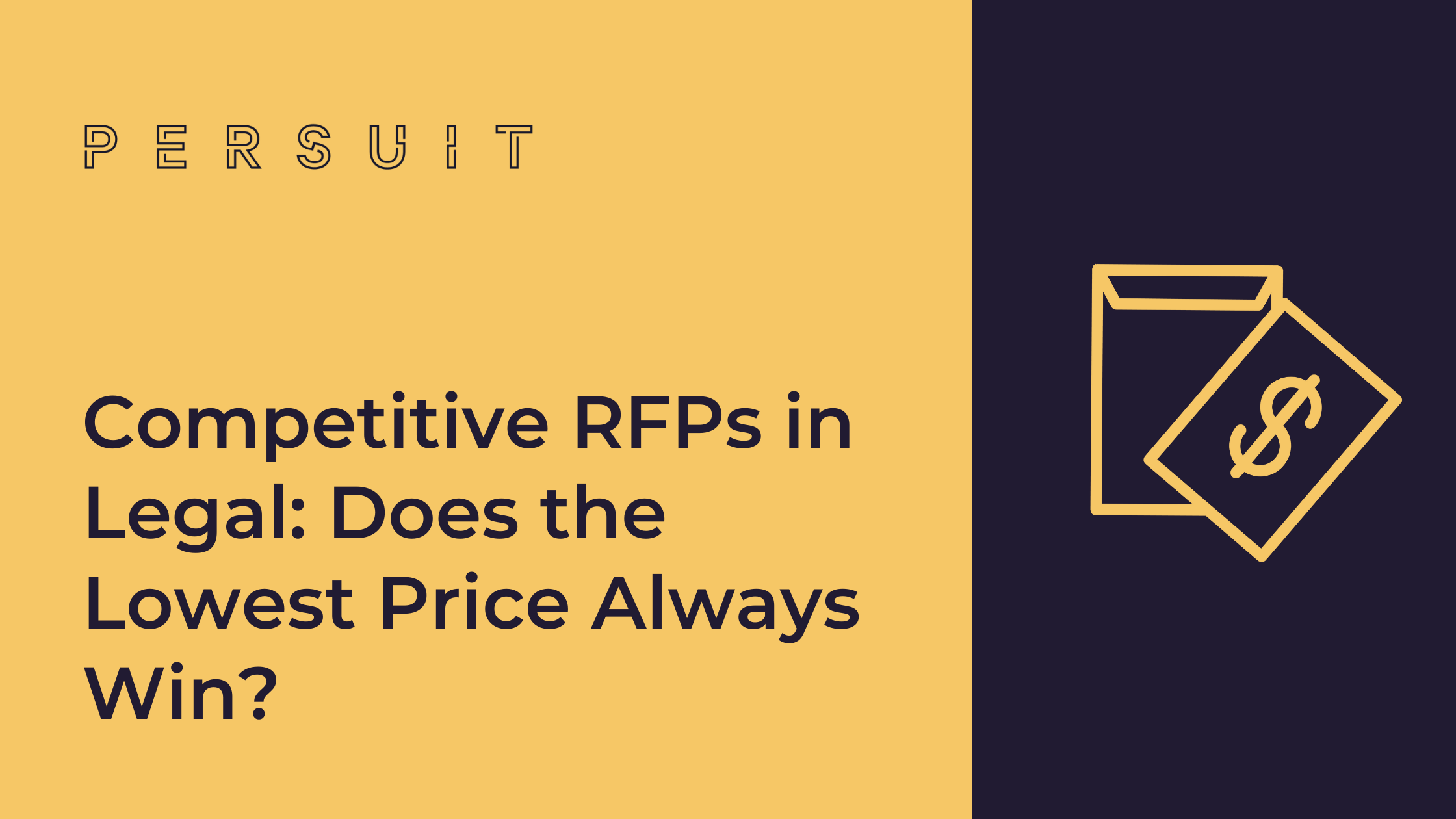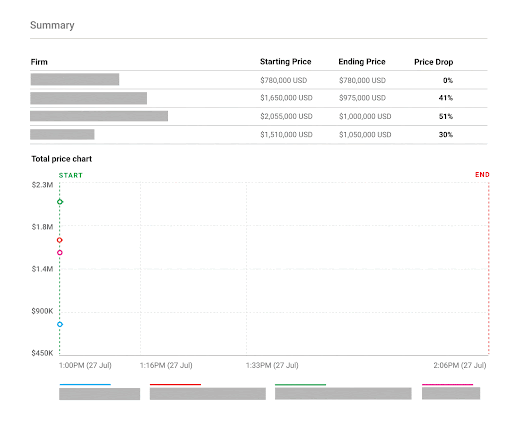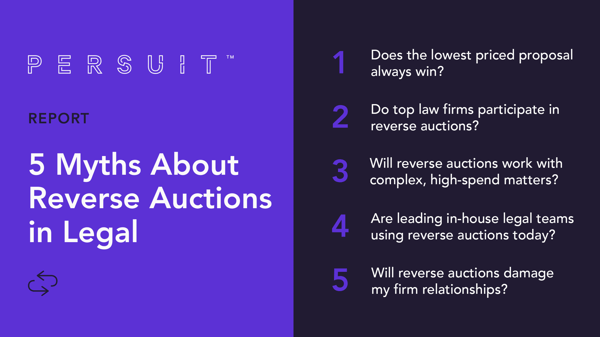
There’s a misconception that when a corporate legal department uses a competitive RFP process to select outside counsel, it creates a “race to the bottom” — meaning the in-house team is only interested in driving down the price.
At PERSUIT, we have a unique view into the buying decisions of corporate legal teams. We’ve seen thousands of RFPs and almost $10 billion in proposal value competed on our platform, including proposals submitted by 100% of Am Law 100 firms.
Here’s what we see in the data:
- Price is an important factor in an RFP process.
- But cost is not always — or even most frequently — the ultimate reason in-house teams select a particular firm.
Here’s what the data says.
The Lowest Priced Proposal Only Wins 50% of the Time on PERSUIT
If price were the most important factor, we’d see corporate legal teams choosing the lowest-priced proposal most of the time.
But that’s not what we see happening with competitive RFPs.
In reality, when corporate legal teams run a competitive RFP on PERSUIT and receive more than one proposal, they select the lowest-priced option only 50% of the time.
That's because running a competitive process results in a price convergence, as illustrated below. This empowers in-house teams to move beyond price in deciding which firm is the best fit based on the things that really matter.

Anecdotally, what we hear in speaking with dozens of in-house teams is that by driving firms closer to a consensus price, or true market value, cost becomes less of a deciding factor than in a traditional RFP process so they can focus on the things that really matter. Like a firm’s experience, qualifications, the diversity of its team, and its proposed approach.
Incidentally, competing matters also often leaves in-house legal teams with a larger pool of potential providers to select from, as firms have the opportunity to sharpen their pencil and adjust their proposals accordingly, rather than price themselves too high from the start and end up being discarded.
While price isn't ALWAYS the most important factor, it's still important. If one proposal is significantly more expensive, that can be a reason the firm isn’t selected. Price can also be a deciding factor when experience, qualifications, and proposed approach are similar between proposals.
Of course, sometimes the highest-priced firm is the one that gets selected. We can tell you how often that happens, too. 🤔
Request a demo or more information here.
To see more of PERSUIT’s data about the pricing of legal services, download our data report: Data Report: 5 Myths About Reverse Auctions in Legal.

